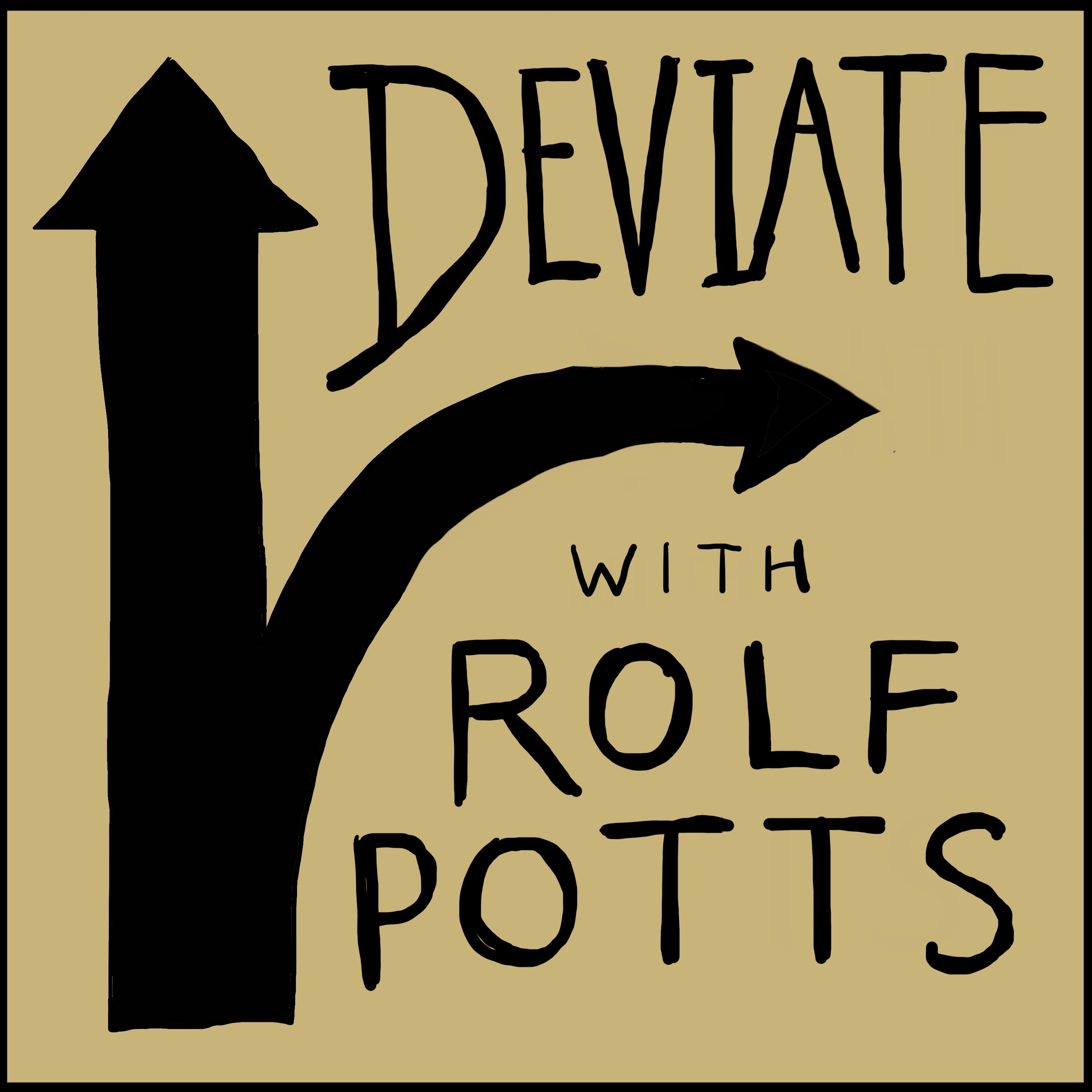Art, music, and sense of place (Faroe Islands)
Description
“You hear how there’s many words for snow in native cultures in Canada; there are actually over 20 words for ‘fog’ in the Faroe Islands.” –Matthew Landrum
In this episode of Deviate, Rolf and Matthew discuss what makes the landscape and culture of the Faroe Islands distinctive, and how Matthew came to study Faroese (2:00); how your motivation to travel to a place affects what you see and experience there, and how isolation affects people’s worldview in a place like the Faroes (13:00); Faroese history, art, and culture, and how World War II transformed it (24:00); how the weather affects one’s experience of the Faroe Islands, and what it’s like to travel there (34:00); and how the Faroe Islands have changed — and stayed the same — over the years (46:00).
Matthew Landrum (@MatthewLandrum) is a writer, speaker, and teacher. He is the translator of Faroese poet Katrin Ottarsdottir’s Are There Copper Pipes in Heaven, and the author of Berlin Poems. He lives in Detroit where he teaches at a private school for students on the autism spectrum.
Faroese music, art, and literature links:
Eivør Pálsdóttir (Faroese singer-songwriter)
Teitur Lassen (Faroese singer-songwriter)
Christine De Luca (Shetlandic poet)
Viking metal (music subgenre)
Týr (Faroese folk metal band)
Trom (TV series set in the Faroe Islands)
William Heinesen (Faroese novelist and painter)
Magic realism (style of literary fiction)
Faroese ballads (traditional music and dance)
Ring Cycles (Germanic heroic legends)
Völsunga saga (Norse saga involving dragons)
Hjalmar and Ingeborg (Faroese ballad)
Faroese travel, language, and geography links:
Streymoy (largest and most populated of the Faroe Islands)
Tórshavn (capital city of the Faroe Islands)
International Summer Institute in Faroese Language
Norn language (extinct North Germanic language)
Týr (Norse god of war)
The case for trekking on foot (Deviate episode)
Vágar Airport (only airport in the Faroes)
Akvavit (Scandinavian distilled spirit)
Kirkjubøur (cathedral-ruin village in the Faroes)
Gásadalur (village near Múlafossur Waterfall)
Heimablídni (Faroese home-hospitality meals)
Skerpikjøt (Faroese wind-dried mutton)
Lutefisk (traditional Scandinavian dish)
University of the Faroe Islands (school in Tórshavn)
Note: We don’t host a “comments” section, but we’re happy to hear your questions and insights via email, at [email protected].
More Episodes
“Influencers are forever reinforcing the same images. They’re spending no time in the actual place, other than the requisite time to take the photo. From the local community’s point of view, these kinds of tourists bring very little value.” –Stuart McDonald
In this episode of Deviate, Rolf and...
Published 11/12/24
Published 11/12/24
“We’re having less enjoyable travel experiences, even as our photos show us having this amazing time, because we’re performing a version of travel for people who aren’t even there.”
In this episode of Deviate, Rolf and David talk about the time-honored practice of Americans pretending to be...
Published 10/22/24


